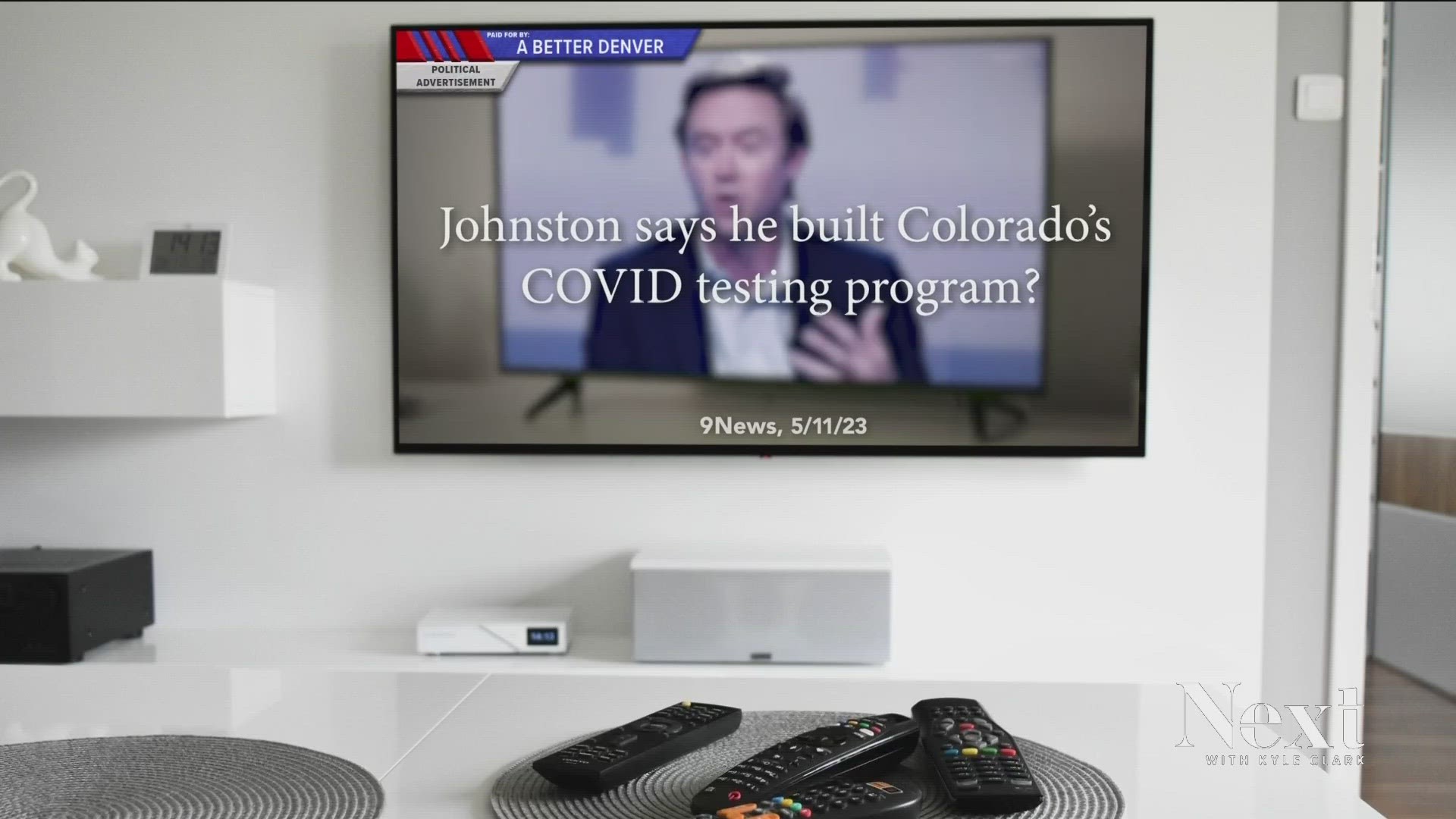DENVER — Certain television ads are allowed to lie.
The Federal Trade Commission (FTC) regulates commercials on television. Political ads, however, are protected by the First Amendment.
That is why political ads can be misleading.
Commercials for businesses cannot be untruthful.
The FTC monitors complaints about “Truth in Advertising. "Federal law says that ad must be truthful, not misleading, and, when appropriate, backed by scientific evidence," their website says.
Political ads are not bound by those same rules.
There is an ad currently airing, paid for by A Better Denver, supporters of Kelly Brough for Denver mayor.
That ad uses reporting by 9NEWS in a misleading way to try to back up claims it makes about Mike Johnston.
AD CLAIM: “Mike Johnston is lying about his leadership.”
VERDICT: No.
The story used to try to back up that claim was about taking a closer look at Johnston’s résumé.
That story never concluded that Johnston lied.
AD CLAIM: “Johnston says he built Colorado’s COVID testing program.”
VERDICT: No. He never said that.
And our story on his resume never claimed that either.
Johnston’s resume includes a claim that he “built and ran complex organizations like COVIDCheck Colorado.”
COVIDCheck Colorado offered COVID testing, and also contracted with the state to provide COVID testing sites free to the public.
The story about his resume included critique from the former head of Colorado’s COVID-19 response. That critique was not about if Johnston built Colorado’s COVID testing program or not.
Truth Tests
While political ads are commercials, they are not held to the same rules that the FTC requires of businesses.
Political ads can be misleading.
While we do Truth Tests, when possible, to correct the misleading claims and provide proper context, the ads will air more than the Truth Tests.
While it would be great to run a crawl on the bottom of the screen, telling viewers where they can find more information about the political ad they are watching, or providing a QR code for a direct link to the Truth Test of the political ad, the people who pay for the ad time pay for the 30 seconds to do as they wish.
“While voters would benefit from more unbiased fact checking from networks, including such information within ads themselves would almost certainly make it difficult to sell ads at all. Such in-ad statements would also likely run afoul of FCC regulations if the ad is paid for by the candidate themselves (rules for third-party ads are more flexible.) But, journalists should continue to include analyses of political ads within news coverage,” said University of Denver political science professor Sara Chatfield. “I think there should be an exception if the ad is using your reporting. That feels somehow different from regular campaign commercials.
SUGGESTED VIDEOS: Full Episodes of Next with Kyle Clark

